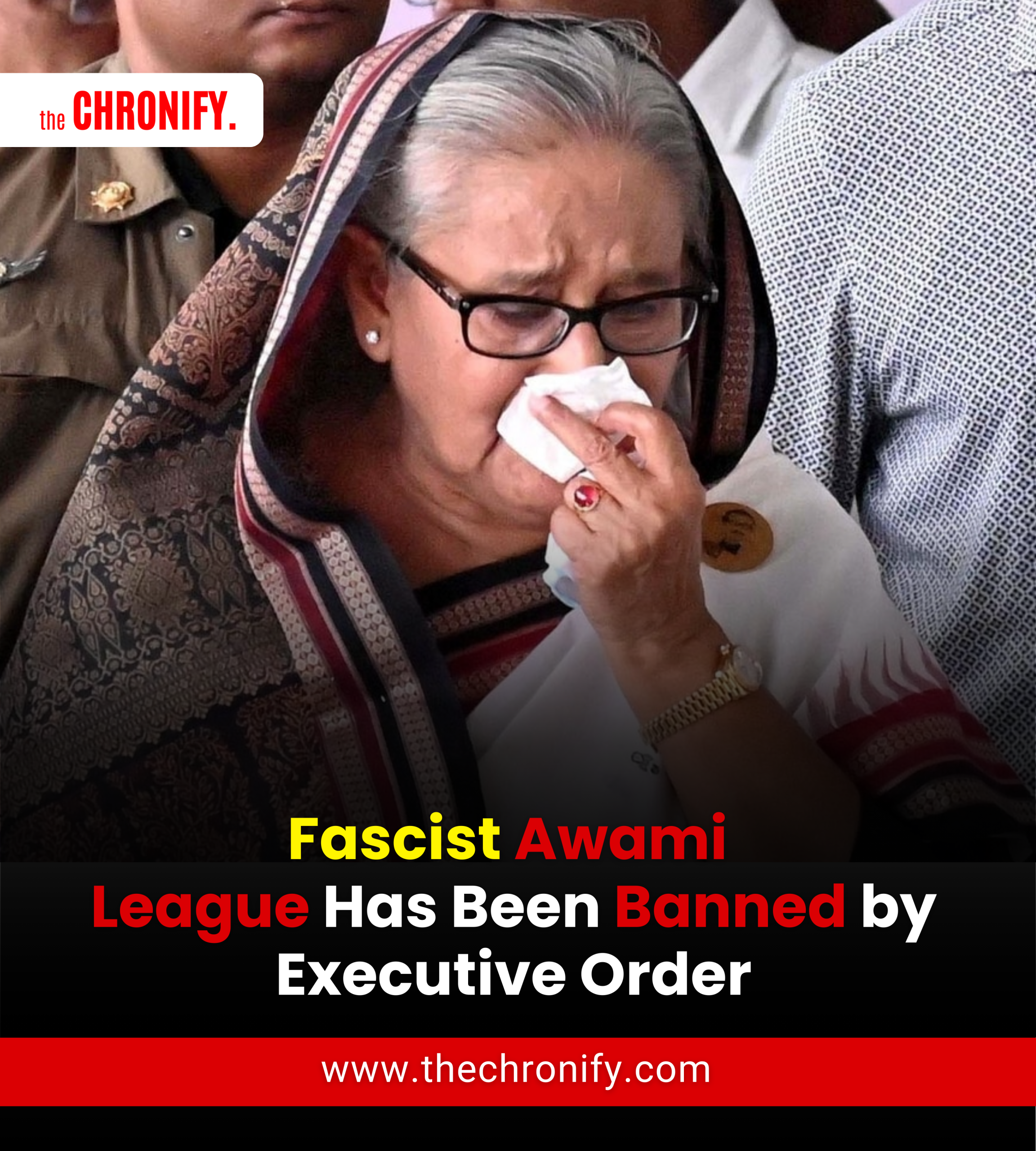Interim Government Considers Ban on Awami League Amid Growing Pressure
The interim government has announced that it is seriously considering a formal ban on the Awami League, following mounting demands from various political parties, organizations, and sections of the public. Allegations of autocratic governance and involvement in terrorist activities have been central to the calls for the ban.
The issue gained momentum after former president Md Abdul Hamid’s recent departure from the country. On Thursday night, a group of protesters, led by NCP leader Hasnat Abdullah, staged a sit-in outside the Chief Advisor’s official residence, the State Guest House Jamuna.
Several student groups and organizations, including Jamaat-e-Islami, AB Party, Islami Chhatra Shibir, Islami Andolan Bangladesh, Hifazat-e Islam, and the Anti-Discrimination Student Movement, expressed solidarity with the protest.
A major gathering was announced at the protest site following Friday’s Jummah prayers. In response, the Chief Advisor’s Office (CAO) issued a statement, confirming that discussions with political parties are underway and a decision will be made soon.
The statement also noted that the government is reviewing a UN report detailing terrorist activities by Awami League leaders and supporters. It urged the public to remain patient while the matter is under consideration.
The CAO confirmed that the Chhatra League, the student wing of the Awami League, has already been declared a terrorist organization under existing laws, in response to widespread public demand.
Additionally, the government is working to amend the International Criminal Court Act to enable prosecution of organizations implicated in crimes against humanity.
The statement acknowledged public anger over the foreign travel of Abdul Hamid, referred to as a “murder suspect” and former head of a “fascist government.” The government pledged to pursue legal action against those involved.
This development marks a sharp turn in Bangladesh’s political landscape. Notably, the Awami League had previously led trials against Jamaat-e-Islami leaders for war crimes starting in 2009, with some top figures executed. Though discussions to ban Jamaat entirely had circulated for years, the government never finalized the legal framework.
Ironically, the Awami League now faces potential prosecution under the very legal measures it once championed.
In the final days of its tenure, the Awami League banned Jamaat and its affiliates via executive order, citing terrorist activities. However, after a change in political leadership, the interim government revoked this ban within a month.
Many experts believe that a lasting ban on the Awami League would require legal reforms, not just executive orders.
When asked about the issue, BNP Secretary General Mirza Fakhrul Islam Alamgir told bdnews24.com that such decisions should reflect the will of the people and be enforced through proper legal channels. He reiterated the BNP’s stance against banning political parties arbitrarily, even though they opposed the Awami League’s previous ban on Jamaat.
“We never said we support banning the Awami League,” Fakhrul noted, “but if there’s a consensus among all parties, we are open to discussion on how it should be implemented.”

